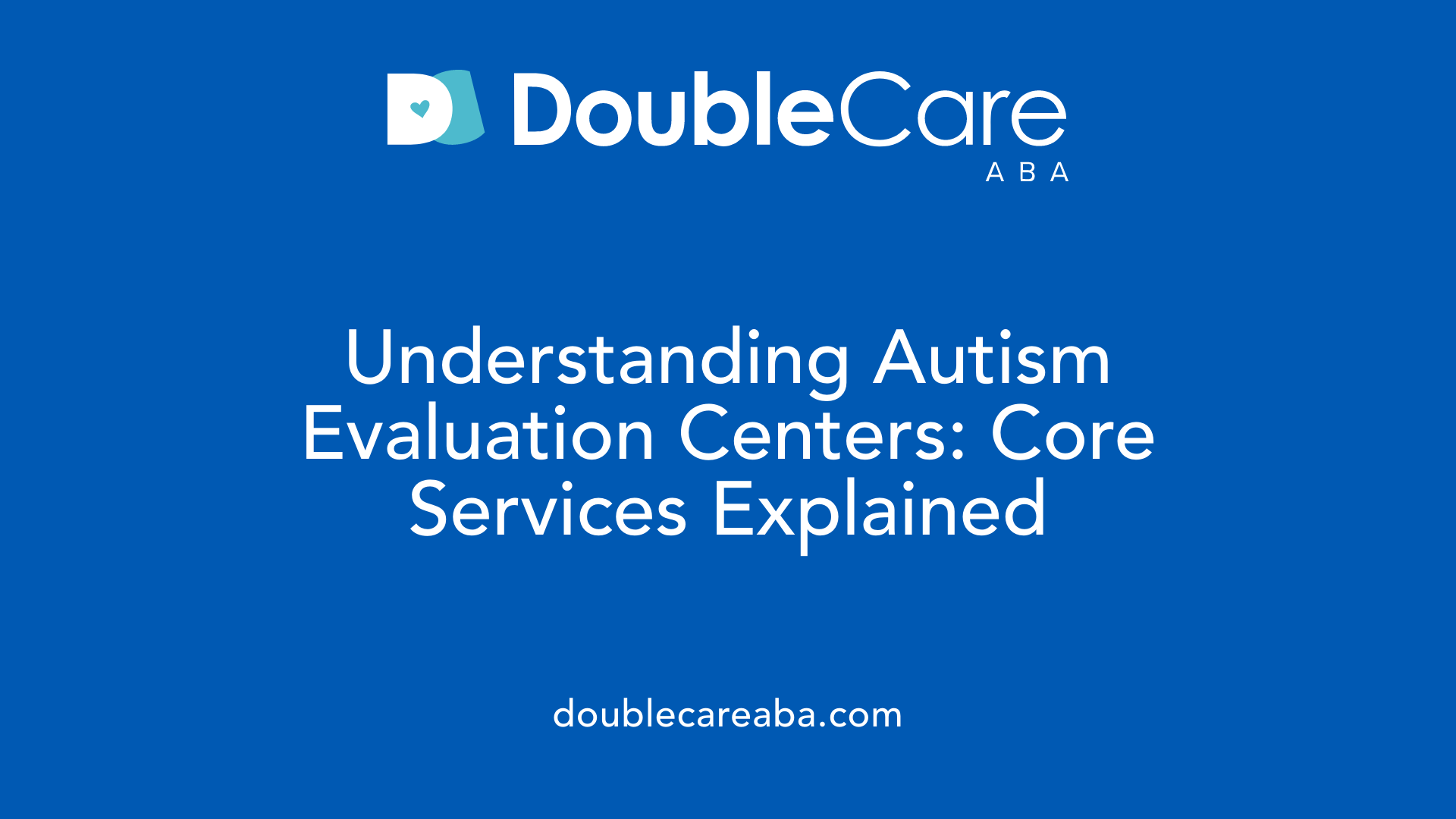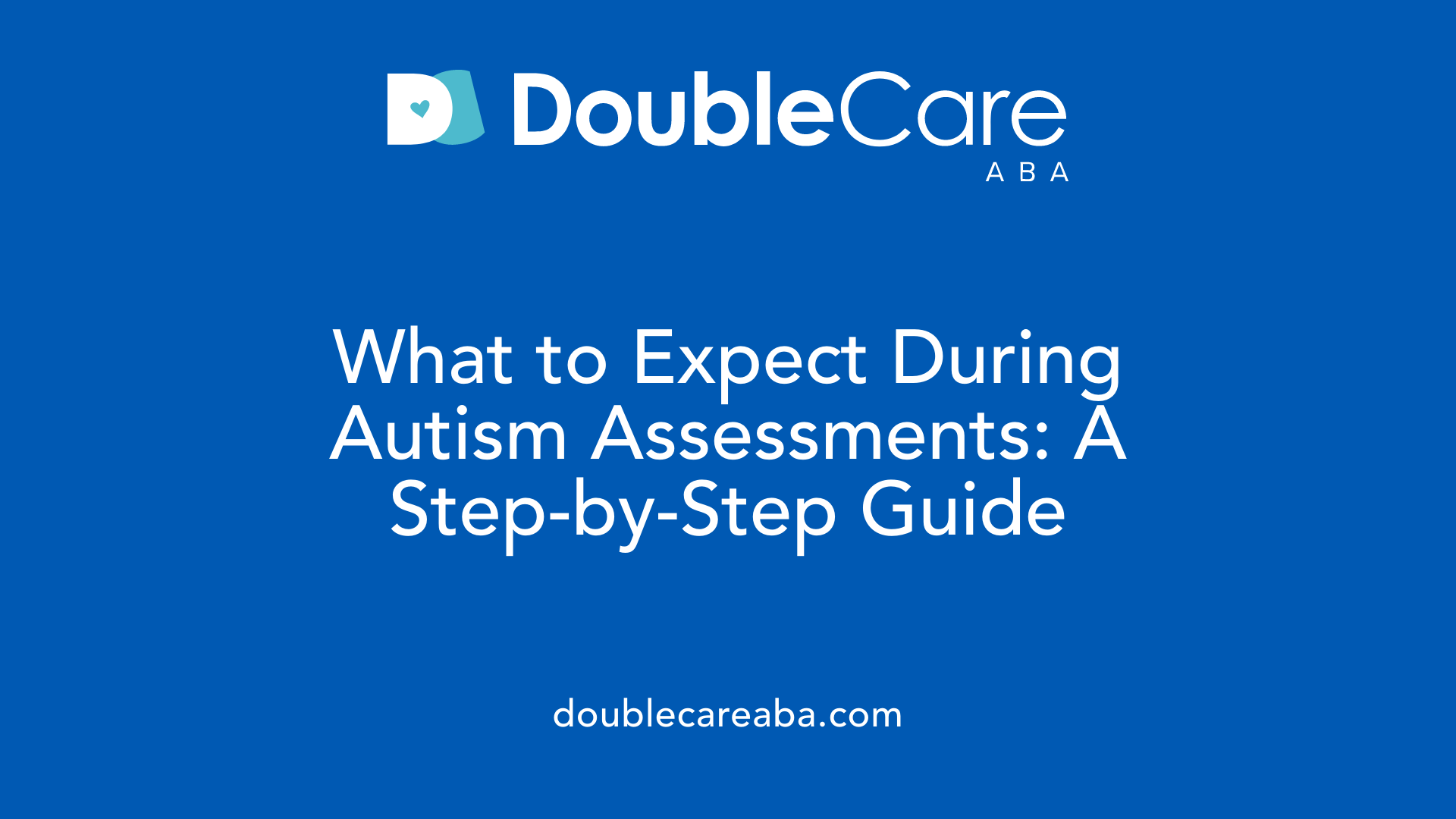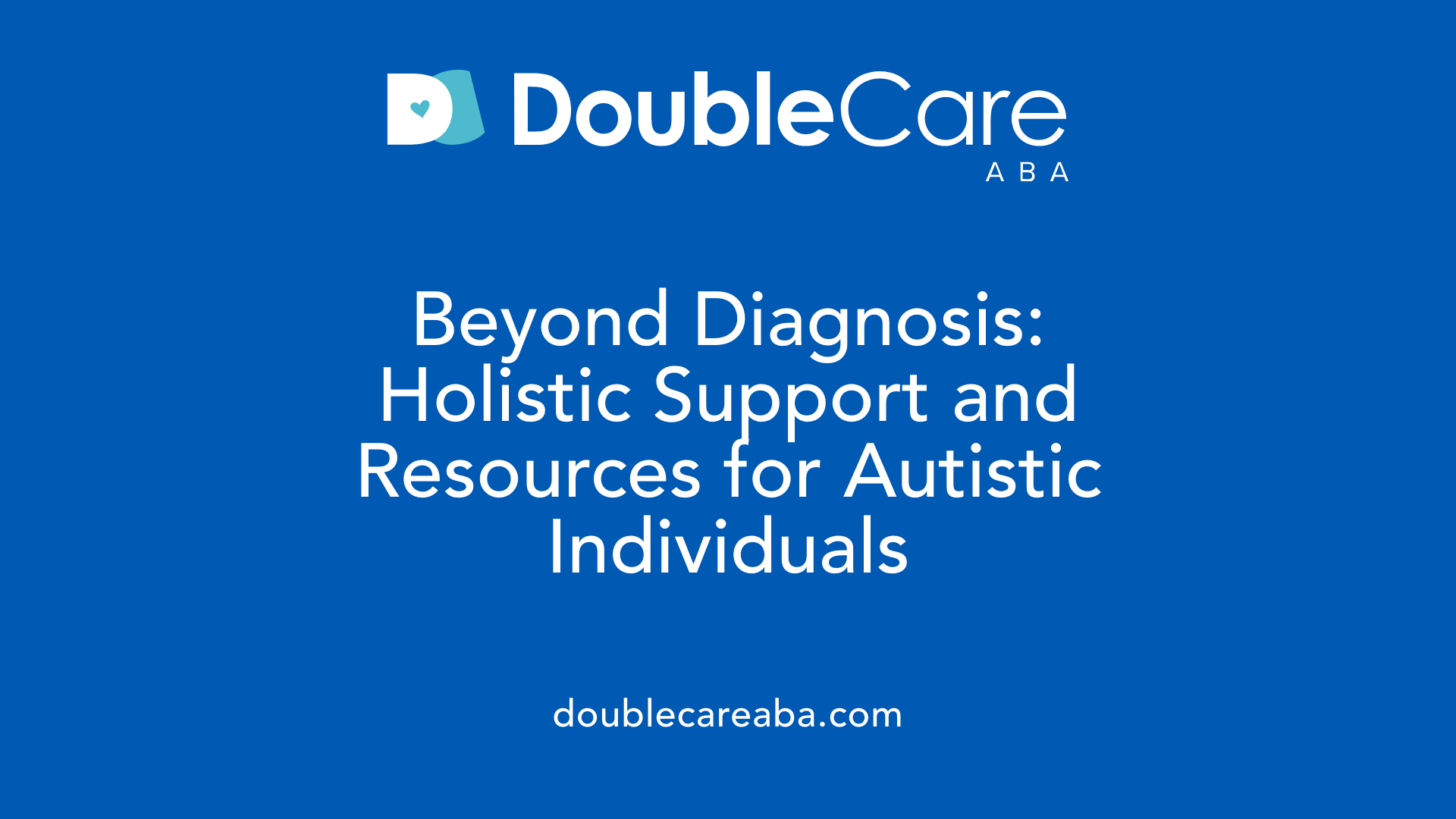Understanding the Role of Autism Evaluation Centers
For families and individuals seeking an accurate diagnosis of autism spectrum disorder (ASD), locating a nearby autism evaluation center is a crucial step. These specialized facilities provide comprehensive assessments tailored to meet the unique developmental needs of children, adolescents, and adults. With a variety of services ranging from diagnostic testing to ongoing support, understanding what to expect from these centers can help families navigate their options smoothly.
What Are Autism Evaluation Centers and Their Core Services?

What are autism evaluation centers and what services do they provide?
Autism evaluation centers are specialized facilities dedicated to diagnosing autism spectrum disorder (ASD) through thorough, evidence-based assessments. These centers, often affiliated with hospitals, universities, or dedicated clinics, employ a team of licensed psychologists, neuropsychologists, or other trained professionals.
The core services include comprehensive autism diagnostic evaluations (CADE), which involve interviews with caregivers or individuals, developmental testing, clinical observations, and utilization of standardized assessment tools. These assessments aim to determine if someone meets the diagnostic criteria for ASD, helping shape personalized intervention plans.
In addition to diagnosis, many centers offer follow-up services such as behavioral therapy, medication management, and family support, ensuring a holistic approach to care. They also provide detailed reports on assessment results and recommendations, facilitating access to appropriate educational and therapeutic resources.
Family involvement is a vital part of the evaluation process. Families are typically engaged throughout, gaining guidance and support to help manage the challenges and celebrate the strengths of their loved ones.
Overall, autism evaluation centers serve as pivotal hubs for accurate diagnosis and tailored interventions, supporting individuals with ASD and their families on their developmental journey.
For those seeking services, resources such as the Autism Speaks provider locator or local Florida organizations like the Autism Society of Florida and UF Health’s Center for Autism and Neurodevelopment can help locate nearby evaluation centers.
How Autism Assessments Are Conducted and What to Expect During Evaluation Procedures

Developmental Monitoring and Screening Stages
Autism assessments typically begin with developmental monitoring and screening, which are crucial at early ages. Healthcare providers conduct routine screenings around 9, 18, and 24 months using validated questionnaires such as the Modified Checklist for Autism in Toddlers (M-CHAT) or the Parents’ Evaluation of Developmental Status (PEDS). These tools help identify early signs of autism spectrum disorder (ASD), like communication delays or unusual behaviors. If screening results raise concerns, a more comprehensive evaluation is recommended.
Components of Comprehensive Assessments
A full autism evaluation involves several components. Licensed psychologists or medical specialists perform detailed assessments that include interviews with caregivers and, when appropriate, with teachers or educators. Standardized testing tools are used to evaluate social skills, communication abilities, and behavioral patterns. Direct observation of the individual is essential to see how they communicate, play, and interact with their environment. These evaluations often last from 2 to 4 hours for young children, and can extend up to a full day for older children and adults.
Involvement of Caregivers and Educators
Caregivers play a vital role in the assessment process. They are interviewed to provide developmental history and to describe current behaviors and concerns. Teachers and educators might also contribute reports, especially for school-aged children, to observe how the individual functions in educational settings. This collaborative approach ensures a comprehensive understanding of the person’s strengths and challenges, guiding accurate diagnosis and supportive planning.
Criteria Used for Diagnosis Based on DSM-5
Diagnosing ASD relies on criteria from the Diagnostic and Statistical Manual of Mental Disorders, Fifth Edition (DSM-5). The DSM-5 describes persistent deficits in social communication and social interaction across multiple contexts, along with restricted and repetitive patterns of behavior, interests, or activities. These symptoms must be present from early developmental periods, cause significant impairment, and cannot be explained by other medical conditions or intellectual disabilities. The evaluation results, including detailed testing reports, help professionals determine if an individual meets these criteria.
| Stage | Activities | Duration | Purpose |
|---|---|---|---|
| Screening | Questionnaires & interviews | 20-30 mins | Early identification |
| In-depth Assessment | Observation, testing, interviews | 2-8 hours | Confirm diagnosis & care planning |
| Follow-up | Feedback sessions & reports | Varies | Support strategies & ongoing care |
This structured process ensures that diagnoses are accurate, enabling individuals to access appropriate interventions and resources tailored to their specific needs.
Services Beyond Diagnosis: Comprehensive Support for Autistic Individuals

What types of services are typically offered by autism evaluation centers beyond diagnosis?
Autism evaluation centers serve as a crucial resource for individuals with autism spectrum disorder (ASD) and their families, offering more than just diagnostic assessments. After confirming a diagnosis, these centers often provide a variety of support services tailored to meet individual needs.
One common offering is personalized intervention planning. This involves creating a custom care plan that aligns with the individual's strengths and challenges, guiding treatment and educational strategies. Speech and language therapy is frequently available to improve communication skills, while occupational therapy helps develop daily living skills and sensory integration.
Behavioral therapies, such as Applied Behavior Analysis (ABA), are widely utilized to reinforce positive behaviors and reduce harmful or disruptive behaviors. Centers also may provide feeding therapy to address specific challenges related to eating behaviors.
Mental health support is another essential component. Many centers offer counseling or psychotherapy to help with emotional well-being, social skills training, and coping strategies. Some facilities also manage medications to treat co-occurring conditions like anxiety or hyperactivity.
In addition to clinical therapies, centers often assist with educational support planning, helping families develop individualized education programs (IEPs) and advocate for appropriate school accommodations. Parent training programs and caregiver support are also provided to empower families with effective strategies.
Referrals to community resources and ongoing care are integral to a comprehensive approach. These may include connecting families with local support groups, respite care, and social integration programs.
Overall, the goal of these services is to promote functional independence, enhance communication, and improve the overall quality of life for individuals with autism, fostering development across multiple domains in a supportive, family-centered manner.
Finding Autism Evaluation and Support Services for All Ages

How can I find autism evaluation centers that offer services for both children and adults?
Locating autism evaluation centers that serve individuals of all ages is easier than ever, thanks to resources provided by reputable organizations such as the Autism Society of Florida, Autism Speaks, and the University of Florida Health. These organizations maintain directories and tools that help families and adults find qualified providers nearby.
Many large hospitals, clinics, and specialized centers like the UF Health Center for Autism and Neurodevelopment offer comprehensive diagnostic evaluations for children and adults. These evaluations often include clinical assessments, interviews, questionnaires, and behavioral observations conducted by licensed psychologists, neuropsychologists, psychiatrists, or multidisciplinary teams.
For specific help, consult online resources such as the Autism Speaks provider search tool, which categorizes services by location and specialization, including 'Autism Evaluation' and 'Specialized Autism Centers'. The website connects users to local clinics and telehealth options, making it easier to find services that fit individual needs.
Recommendations from your primary care physician or local healthcare providers can also point you toward trusted centers, especially those with experience in diagnosing a wide age range. Centers like the Stanford Autism Center or the CHC Specialty Clinic are known for their ability to evaluate both children and adults within the same facility.
In summary, by using national directories, consulting local healthcare providers, and exploring reputable organizations' websites, you can access quality autism evaluation services for all ages—helping individuals understand their diagnosis and access vital support.
Programs and Resources Supporting Autistic Individuals and Their Families

Are there programs and support services available for individuals diagnosed with autism?
Yes, there are numerous programs and support services for autistic individuals. Various organizations and local services work to provide comprehensive support tailored to different needs.
The Autism Society of Florida, an affiliate of the national autism organization, offers resources, support groups, and information to families. Similarly, the Autism Society of Greater Orlando and My Autism Connection Inc. serve specific regions, connecting families with community resources and offering social and educational support.
Among the most significant providers are specialized centers such as the Center for Autism and Related Disabilities (CARD) and the UF Health Center for Autism and Neurodevelopment. These centers provide state-of-the-art diagnostic evaluations, behavioral therapy, medication management, and counseling services. They focus on early diagnosis and personalized treatment plans to support both children and adults.
Online resources play a crucial role as well. Autism Speaks offers a comprehensive online guide to locate evaluation providers and autism-specific centers across Florida. Their resource directory can help families find local clinics, neuropsychologists, psychiatrists, and telehealth options to facilitate access to diagnosis and ongoing support.
Support for adults with autism is also available. The Autism Society of Florida maintains a list of qualified evaluators, including neuropsychologists and psychiatrists experienced in adult ASD assessments. Such evaluations help adults understand their experiences better, access support, and plan for employment or independent living.
Overall, the community-based programs, professional evaluations, and online tools form a robust network aimed at fostering inclusion, independence, and well-being for autistic individuals and their families. This extensive infrastructure ensures that support is accessible across Florida, addressing diverse needs at various life stages.
Navigating Autism Evaluation and Support
Finding the right autism evaluation center and support services can significantly impact the development and quality of life for autistic individuals. With a wide array of evidence-based diagnostic options, personalized therapies, and community resources, families and individuals are better equipped to face challenges and embrace opportunities. Utilizing trusted organizations' directories and consulting healthcare professionals can facilitate access to tailored care that respects each person's unique needs. Starting with an accurate diagnosis and ongoing support can open the doors to more effective interventions and meaningful community participation.
References
- Autism Resources | Florida Department of Health
- Psychology - Center for Autism and Neurodevelopment
- UF Health Center for Autism and Neurodevelopment
- Adults with Autism | Autism Society of Florida | United States
- Resource Guide
- Screening for Autism Spectrum Disorder
- What happens during an autism assessment
- Clinical Testing and Diagnosis for Autism Spectrum Disorder
- Autism Screening & Assessments















